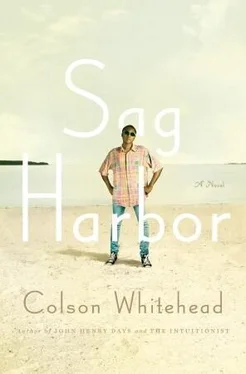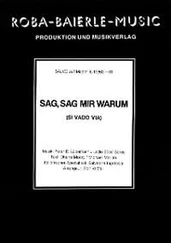We waited. There was this new gang of kids, boys and girls I hadn't seen all summer. Where did they come from, these cocky little shits, acting like they owned the street? As if these were not our races they were running. Where had they been hiding? Biding their time all these months, on Azurest Beach while we tried to claim the ocean beach, spinning the comics racks at the Ideal now that we had abandoned them. They prowled around on their bicycles looking for the next caper or disappointment, floating above the seat, assaulting the pedals for a few seconds and then gliding for a while, savoring this process. Ditching their half-eaten slices at Conca D'Oro when their lookout finger-whistled of our approach. They bristled at the line while Mr. Grady dicked around reciting the rules they already knew. Our replacements.
“I should get in there and win that medal,” Barry David said. “Take that shit.”
“You're too old,” Reggie said. He didn't like this kid.
“I know that, shit. I was just saying.” He poked the last bit of hamburger bun in his mouth and licked his lips.
Mr. Grady took his time. We grew impatient. Let's get this show on the road. We were all there. It was where we mingled with who we had been and who we would be. Sharing space with our echoes out in the sun. The shy kid we used to be and were growing away from, the confident or hard-luck men we would become in our impending seasons, the elderly survivors we'd grow into if we were lucky, with gray stubble and green sun visors. The generations replacing and replenishing each other. Every summer this shifting-over took place in small degrees as you moved closer to the person who was waiting for you to catch up and some younger version of yourself elbowed you out of the way.
Where was my replacement, then? Which boy was it, standing with the others at the starting line. Waiting for it to begin. Probably that knock-kneed creature in the green mesh T-shirt, with the scabbed knees and telltale messed-up Afro. Just looking at him, you knew he wasn't going to win. It was in the way he carried himself, last place before he'd taken a step. But he'd give it a good try. Like he always did. They hadn't beaten that out of him yet.
“Get on with it, Grady!” someone yelled, and the grown-ups laughed.
And who was I replacing? According to this scheme, he had to be here on this street, chowing down on some of Mr. Baxter's pork ribs. Was he one of Those Who Didn't Come Out Anymore? Had he been happy out here, or was he out in the world never speaking of this place just as it did not speak of him, the one who did not turn out as expected. Did he find someone? Was he here watching over his kids to keep them safe and reminiscing with the old pals, shaking hands that were cold and wet from beer-snagging dips into coolers, catching the eye of his wife from the other side of the street. She smiles back and they share this moment in the crowd. Maybe he didn't exist and I was the first of my line. The mutant strain. Or I was in his vicinity, but I couldn't recognize him because I didn't believe I could grow into that one day, smiling and assured and at peace. That sleeping part of me finally roused to action. Maybe I saw him every day out here, passing him by, I was looking at him now, and I pitied the very sight of him, too scared to acknowledge how I would turn out.
The pistol sounded. They ran down the street, all the boys 11 to 12, minus the asthmatics, slapping down the pavement in their cheap rubber. The obvious winner, the tallest kid, the most put-together kid, the one who knew how to move through the world, quickly pulled out in front. The kid I put my money on, the one in the green mesh shirt, didn't come in last, but just barely. He hunched over by the finish line, panting. Tough race. The first time we ran it, I remembered, this street was still dirt. They finally put some asphalt down and then people started retiring out here, staying past Labor Day and through the winter. It wasn't their summer place anymore. It was their home.
The winner jumped up and down. Mr. Grady said, “Almost beating Gary Osgood's famous record from 1981, but not quite, is Little Clive of Azurest!” There was a Little Clive? How could there be more than one Clive, it was ridiculous. The recent overlap in Mohammads and Malcolms made sense, times change, but how could there be another Clive?
With the races over, the crowd reclaimed the street after being penned in the sidelines, bumping their butts against the folding tables and old ladies' chairs. I caught sight of my runner as the people hustled in. He turned from his friends and a darkness churned through his features for a moment before he found his mask again. Yeah, he had to be me. That was me all over. The look of fret when he slips up and for a second other people can see it. Sometimes you recognize yourself in other people right off and sometimes it's subconscious. When you get older, you gather friends and lovers for reasons other than the accident that your houses are close together. There's an affinity, stuff you share in common and things you seek out in other people. Something drew you together but you didn't understand that secret undertow until one day after years and years of talking, it comes, the key story that lays it all out. Who could know at the start of that innocent evening that this was the night to make it plain. They tell you what happened and you think, we're more alike than I knew, but of course you did know, it's what brought you together. Incomplete children become incomplete adults. You can see it. You find each other.
Maybe my earlier model, the jolly son of Sag Harbor I was replacing, was looking at me in that moment, a can of Budweiser resting on his paunch, bad mustache shrubbing his lip, thinking, Why is he standing around when he could be out having fun? Such a chump. I can relate. Talking about that summer all this time, sometimes I have to stop and say, I don't know who this Benji kid is, either. Certainly he would not recognize the man he came to be. The poor sap. I need him to figure out how I got where I am, and he needs me to reassure him that despite all he knows and has seen and feels, there is more. I can listen to him. But of course he can't hear a damn thing I say.
“You can run, but can you jump? Look at you. You can run, but can you jump?” Barry David was playing keep-away with Little Clive's First-Place medal. The younger boy grabbed for it and Barry David snatched it higher. Was there anything worse than a bigger kid playing keep-away with your stuff? That dreary rehearsal for adulthood. It wasn't something we'd do to the little kids. Well, some of us, maybe. But never on a weekend, when parents were around. Barry David didn't care who saw. Little Clive's cheeks reddened. “Look at you!”
I was about to say something when Barry David went stiff, like he'd been zapped by one of those mythical fallen power lines we kept being warned about after a storm. An old lady had him, I didn't know her name. She was one of the great shrunken matriarchs of the community, the ones who only came out of their first-floor rooms in the back of the house one day a year. They had seen it all, witnessed the earth cool and the newly amphibious heave themselves onto sand. The uneasy birth of the developments. She snapped Barry David's arm securely in her claw and said, “Stop that this instant! Stop it! Listen to me when I'm talking to you.”
Barry David looked at his arm, confused. His mind couldn't process this interference. I looked around for NP's mother, tensing myself for the spectacle of her disciplining her nephew in front of everyone. He lowered the medal down to Little Clive.
“Where are your parents?” the old lady said.
For a second there, I thought he was going to whop her. It was a bizarre idea. Such a thing would never happen. But what he did do was almost as improbable — he wrenched his arm free and disappeared into the people and I didn't see him until the bonfire. The old lady harrumphed and lowered herself into her chair. She picked up her fan and waved it across her face and breast. It wasn't that hot. She smiled.
Читать дальше












